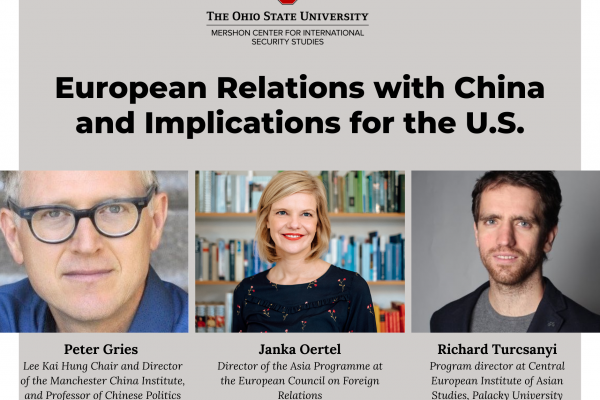
Join the Mershon Center for a discussion on the relationship between European countries and China, and how those relationships impact the U.S. Three experts – Peter Gries from the Manchester China Institute, Janka Oertel from the Asia Programme at the European Council on Foreign Relations, and Richard Turcsanyi from the Central European Institute of Asian Studies at Palacky University Olomouc – will analyze the following questions.
How do people in different European countries perceive China and how are European states likely to deal with China? How will attitudes and perceptions in various European countries affect intra-European cooperation when it comes to China? How will these beliefs affect U.S.-European cooperation vis-à-vis China? Are there likely to be splits between Western Europeans and Eastern Europeans? Are there other faults lines? If so, what are they? What does the often discussed “strategic autonomy” of Europeans vis-à-vis the United States mean when dealing with China? What are the most obvious domestic obstacles in European states when it comes to putting together an effective China strategy? What are the most useful moves a new administration in Washington might make when it comes to China? How will China react to various European and U.S. moves in both the short and longer runs?
Please review this reading ahead of attending the event.
